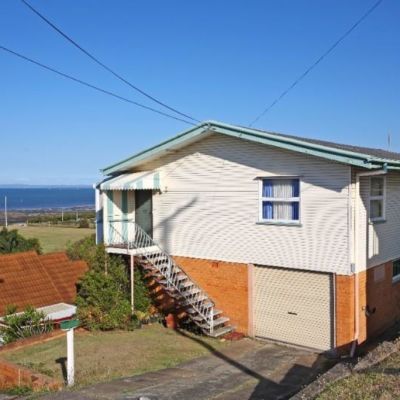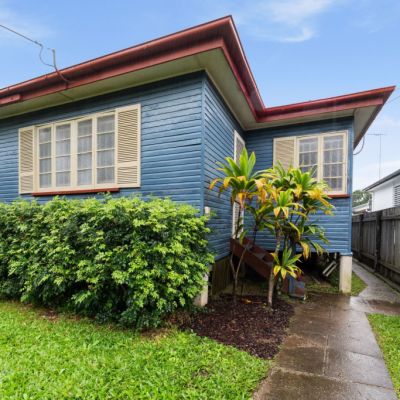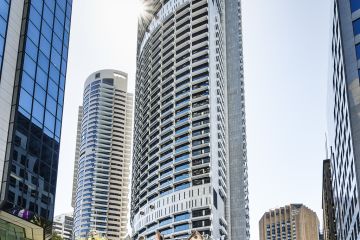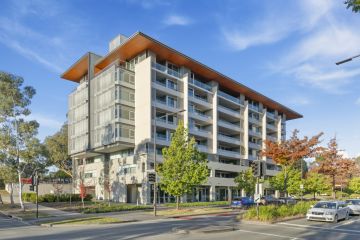The type of negatively geared landlords who lose the most money
People who own one investment property lose more money on average than owners of multiple properties do per dwelling, new analysis shows.
On average, owners of one investment property lose $6899 per year, while those who hold six or more dwellings lose $5765 per dwelling, RMIT University lecturer in sustainability and planning Dr Liam Davies found.
“This means that investors with more properties lose more money overall, and would therefore have a higher cost through revenue foregone, but that loss per property interest is lower,” Davies said.
Negatively geared investors “lost” (claimed deductions for) a total of $10.35 billion over 2022-23, based on the most recent Australian Tax Office statistics for that year. People “with an interest” (an investment) in one property lost a total $5.7 billion, while those with interests in two or more lost $4.75 billion.
“From a property perspective, larger investors have a higher individual cost to government, but may have a lower per property cost than those with one property,” Davies said.
Most investors own one property, so while restricting negative gearing benefits to those with only one property will mean no change for the majority of investors and may feel fair, Davies says “the government could generate more taxation revenue by restricting negative gearing to those who have multiple investment properties”.

It comes as several bodies urge limits on negative gearing and capital gains tax concessions ahead of next week’s Economic Reform Roundtable, including the ACTU’s plan to limit negative gearing and capital gains tax benefits to one investment property.
Paradoxically, such a proposal would not recoup as much money for taxpayers as removing deductions for single property investors, who ultimately cost the government more to subsidise.
The Australian Council of Social Services wants to phase out negative gearing entirely and halve the 50 per cent capital gains tax discount over five years. Meanwhile, the Grattan Institute recommends reducing the tax discount to 25 per cent and curbing negative gearing so that rental losses could no longer be offset against wage and salary income.
Treasurer Jim Chalmers dismissed any changes to negative gearing or the capital gains tax discount in an interview on ABC News Breakfast on Thursday morning. He said the government was instead focusing on delivering more supply to help housing affordability.
About 72 per cent of all investors own one property, ATO data shows, which some experts believe adds to rental insecurity. “Penalising large landlords and exempting small ones is a bad idea,” says Peter Tulip, chief economist at the Centre of Independent Studies.
“Australia has a terrible problem with rental insecurity – huge numbers of people will have been evicted because their landlord has decided to sell the property. This is a much smaller problem in Europe or the United States, because their rental stock is owned by big corps, who are happy for you to stay there for decades.
“We have the wrong landlords, and ACTU wants to make that problem worse,” he says.

Independent economist Saul Eslake says keeping negative gearing benefits to just one property would only affect 29 per cent of investors, meaning “most people who have a negatively geared property would continue to have it under the ACTU proposal”.
Menzies Research Centre’s 2024 research found 18 per cent of negatively geared investors are trade union members, and 65 per cent of negatively geared residential property investors had a taxable income of $120,000 or less. Negative gearing is used by 27,600 nurses and 28,000 teachers.
Davies says while it may be more politically palatable to target large investors, it would make more sense to remove negative gearing altogether. “If the goal is to make housing more affordable, this won’t make much difference to affordability,” he says.
His 2024 paper argues access to the tax breaks should be conditional on minimum five-year fixed term leases, one rent increase and inspection per lease period; dwelling quality; and below-market rent.
Tulip agrees tax concessions for investors are unimportant to housing affordability. “Several good researchers have estimated their effect on affordability in different ways, and they find their effect is tiny – between 1 and 4 per cent.”
He says there is scope for amendments to the investor taxes.
“The 1999 Ralph Review suggested the capital gains tax discount to promote enterprise and risk taking, and my view is that applies more strongly to investment in shares or other business investment than real estate, where the huge capital gains accrued by landowners aren’t done so for any sacrifice or effort on their part,” he said.
Eslake says people should not be allowed to offset excess interest against their wage and salary income, and should instead “carry it forward as a deduction against the capital gains tax liability when they sell [their property].”
He rubbished claims that eliminating negative gearing would make affordability worse. “If landlords were to sell their investment priorities, who would they sell to? First home buyers or other owner-occupiers trading up,” he says. “Yes, it would reduce the supply of rental housing, but it would also reduce the demand for rental housing by the same amount.”
Eslake says despite what they say publicly, politicians and most Australians don’t want the problem of housing affordability to be solved.
“Australians have come to think, and policies have encouraged them to think, that property ownership or investment is a means of accumulating wealth,” he says.
“Whenever I hear a politician say, ‘it’s just mums and dads trying to get ahead’, I respond with ‘ahead of whom’?,” he says. “Their own children and grandchildren, that’s who.
“A majority of Australians who own property want it to go up in value … and Albanese said they [the government] want house prices to keep going up – they don’t actually want to solve this,” he says.
States
Capital Cities
Capital Cities - Rentals
Popular Areas
Allhomes
More
- © 2025, CoStar Group Inc.










